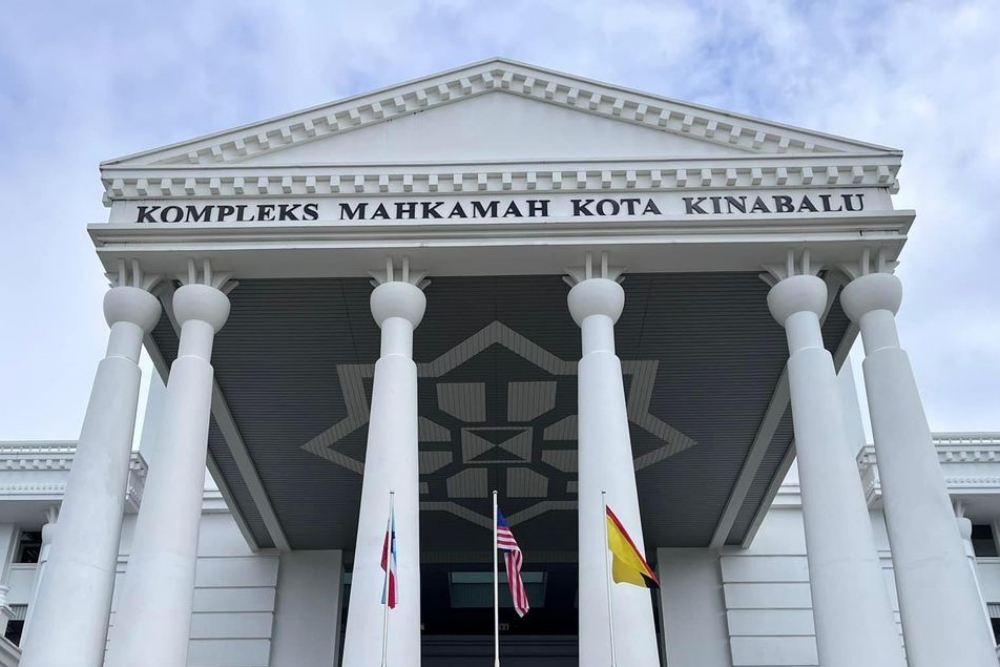ADVERTISE HERE

Yang (second right) highlights some points during a forum at the BIWWEC 2024.

KUCHING (Oct 25): Senior professionals should be open and welcoming rather than acting as gatekeepers to encourage young water professionals to engage in global efforts and contribute meaningfully and influencing policy making in the water sector.
According to Yang Villa, co-founder of the International Water Association (IWA) Young Water Professionals (YWP) Chapter in the Philippines, and also Water Resilience Hub and Clusters TA Management Consultant at the Asian Development Bank (ADB), young people are ready and willing to be involved and engaged such as becoming volunteers and handle responsibilities.
However, Yang, who has championed impactful collaboration in the water sector and worked on international initiatives like the United Nations (UN) Water Conference, also questions whether senior professionals are creating opportunities and platforms for young people, emphasising that it is the responsibility of leaders – those with influence and power – to make this happen.
“It is unjust and unfair that the youths of tomorrow have no voice in policy making when they have to bear the brunt of the decisions we’re making today.
“The onus is on the young people to keep raising their voices and choosing their battles wisely.
“But for those voices to matter, gatekeepers – including perhaps some, if not all of us, in one way or another – have to get out of the way.
“I think all of us here will have, at some point, experienced that barrier to just getting our voice heard and this is especially for more marginalised communities, such as women, indigenous people, genderqueer individuals, and poor and vulnerable groups.
“Young people are acutely aware of these barriers, as they see first-hand how the lack of diversity and inclusion is impacting the performance of our organisations and the water sector,” he said during a forum titled ‘Young Water Professionals: Leading the Charge for a Sustainable Future’ at the Borneo International Water and Wastewater Exhibition and Conference (BIWWEC) 2024 at the Borneo Convention Centre Kuching (BCCK) today.
Nonetheless, Yang highlighted that the young people must also be more proactive, as international collaborations had been becoming increasingly important in addressing water challenges.
“Of course, being part of the IWA Young Water Professionals network is valuable – it’s a well-established network that fosters cross-country and cross-region collaboration.
“But for the young people, I want to remind them that simply being part of the network is not enough.
“You have to put in the work. You cannot just sign up and expect that you will suddenly rise up in your career.
“It’s the other way around. Without putting effort into the network, it will be hard to reap its benefits.
“Another piece of advice is to continue contributing locally. Many young people fantasize that once they’re part of global projects like IWA or ADB, they’ll quickly climb the career ladder, but that’s not true.
“There’s real value in making an impact locally, and often the best work is done in your immediate surroundings, whether that’s within your local community or a small company.
“That’s exactly what leaders and those with influence are looking for – the young people willing to put in the work. That’s how you get invited into those spaces.”
Yang also touched on the importance of mentorship, sharing three of the five guiding principles of the mentorship approach that he helped redesign as part of the steering committee for the global YWP.
“First, mentorship should be mentee-driven, empowering YWPs to approach potential mentors without any gatekeeping. They should feel confident initiating conversations, knowing that mentors within the IWA network will be open to engaging with them.
“Second, mentorship should be viewed as a flexible marketplace, allowing mentees to approach mentors for conversations. If they connect, they can continue the relationship; if not, they can politely move on to seek another mentor. This approach should feel fluid rather than a structured one-on-one setup.
“Lastly, mentorship should be a two-way exchange.
“It’s not just about the younger professionals learning from the seniors; the seniors can also learn from the younger generation. Tools like AI (artificial intelligence) and digitalisation are examples of knowledge that the older generation can gain from their younger counterparts.
“So I think all of these means that in our workplaces there has to be a significant cultural shift to make mentorship more organic and be more meaningful,” said Yang.








 English (US) ·
English (US) ·